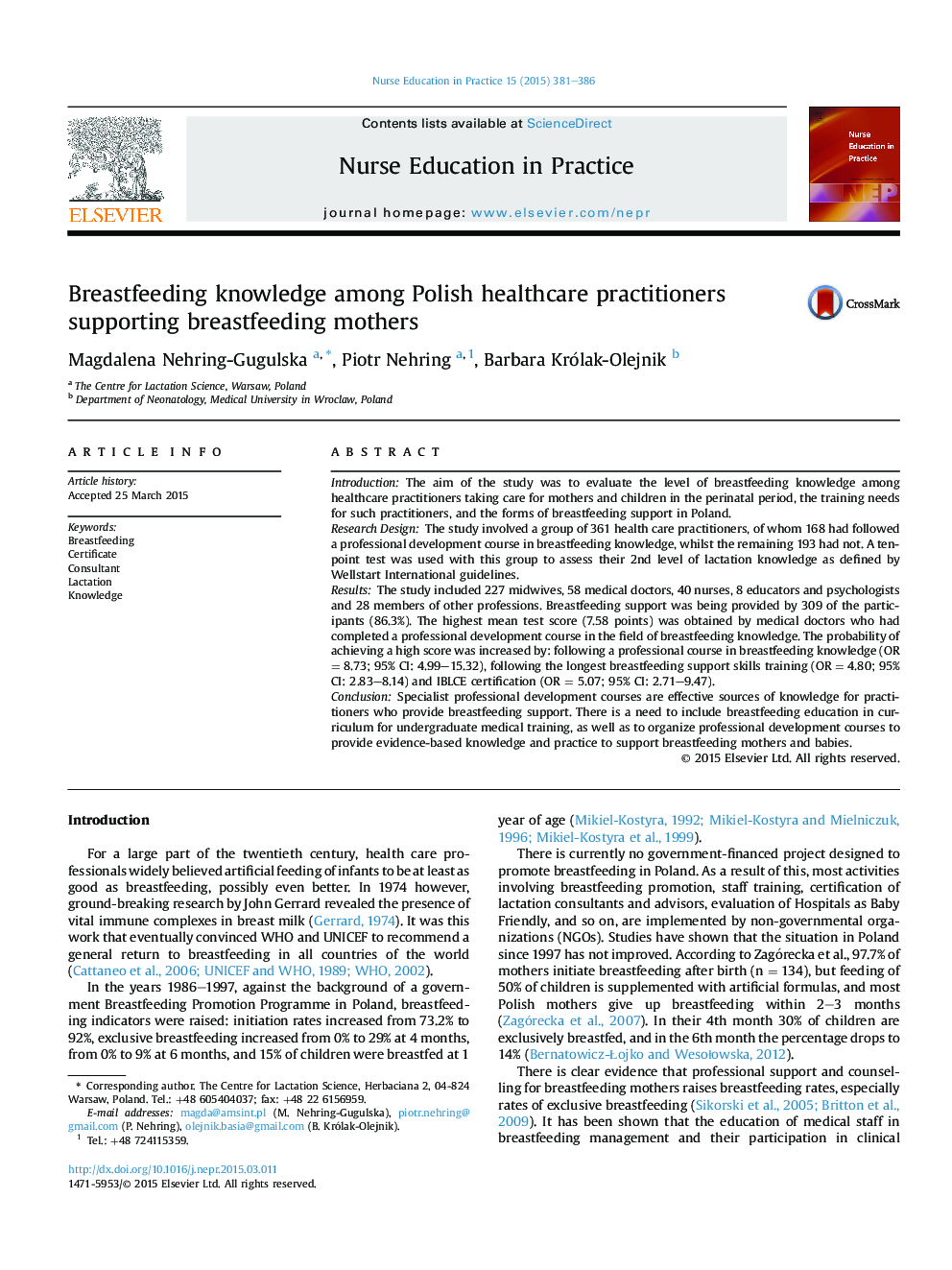| Article ID | Journal | Published Year | Pages | File Type |
|---|---|---|---|---|
| 366873 | Nurse Education in Practice | 2015 | 6 Pages |
•It is necessary to educate medical personnel in the professional breastfeeding knowledge and supporting skills.•Conventional undergraduate and postgraduate courses are ineffective in achieving 2nd lactation knowledge level.•Long-lasting, professional development courses are effective sources of knowledge for practitioners providing breastfeeding support.•The best educated are lactation consultants IBCLC who practice during home visits and in private or hospital outpatient clinics.
IntroductionThe aim of the study was to evaluate the level of breastfeeding knowledge among healthcare practitioners taking care for mothers and children in the perinatal period, the training needs for such practitioners, and the forms of breastfeeding support in Poland.Research DesignThe study involved a group of 361 health care practitioners, of whom 168 had followed a professional development course in breastfeeding knowledge, whilst the remaining 193 had not. A ten-point test was used with this group to assess their 2nd level of lactation knowledge as defined by Wellstart International guidelines.ResultsThe study included 227 midwives, 58 medical doctors, 40 nurses, 8 educators and psychologists and 28 members of other professions. Breastfeeding support was being provided by 309 of the participants (86.3%). The highest mean test score (7.58 points) was obtained by medical doctors who had completed a professional development course in the field of breastfeeding knowledge. The probability of achieving a high score was increased by: following a professional course in breastfeeding knowledge (OR = 8.73; 95% CI: 4.99–15.32), following the longest breastfeeding support skills training (OR = 4.80; 95% CI: 2.83–8.14) and IBLCE certification (OR = 5.07; 95% CI: 2.71–9.47).ConclusionSpecialist professional development courses are effective sources of knowledge for practitioners who provide breastfeeding support. There is a need to include breastfeeding education in curriculum for undergraduate medical training, as well as to organize professional development courses to provide evidence-based knowledge and practice to support breastfeeding mothers and babies.
